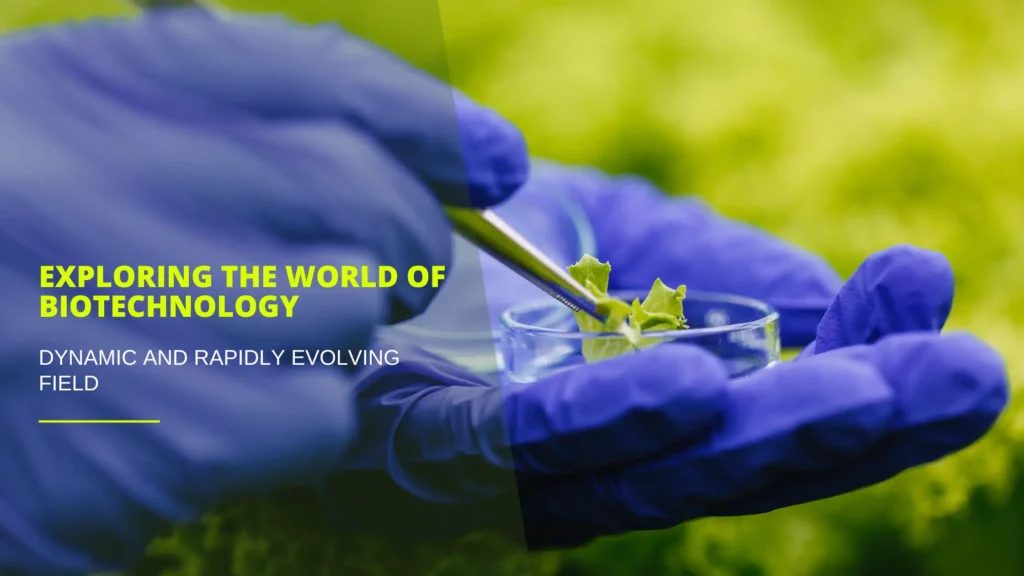Biotechnology is revolutionizing the way we understand and manipulate biological systems. It’s an exciting field where science meets innovation, transforming our approach to medicine, agriculture, and environmental sustainability. Whether you’re a science enthusiast or just curious about cutting-edge technologies, biotech has something fascinating for you to explore.
The Basics of Biotechnology
At its core, biotechnology involves using living organisms or their components to develop new products and technologies. Imagine harnessing the power of tiny microbes to produce life-saving drugs or improve crop yields. It’s like nature’s toolkit, reimagined and repurposed for solving some of the world’s biggest challenges. Through genetic engineering, biotechnology allows us to modify organisms in precise ways, unlocking new potentials and capabilities.
Biotechnology in Medicine
One of the most impactful areas of biotechnology is medicine. Thanks to biotech innovations, we now have treatments that were once science fiction. For instance, monoclonal antibodies are engineered proteins that can precisely target and neutralize disease-causing agents. These have become game-changers in treating cancers and autoimmune disorders. Gene therapy is another groundbreaking development, allowing doctors to correct defective genes responsible for certain diseases. Imagine curing genetic disorders at their root—this is no longer just a dream, but a reality being realized through biotechnology.
Vaccines are another brilliant success story of biotech. With the advent of mRNA technology, we witnessed a rapid and effective response to the COVID-19 pandemic. This technology provides a blueprint for the immune system to recognize and combat viruses, and it holds promise for future vaccines against other diseases. You might have received an mRNA vaccine yourself, benefiting directly from the marvels of biotechnology.
Biotechnology in Agriculture
Biotechnology is not just transforming medicine; it’s also making waves in agriculture. Genetically modified organisms (GMOs) are perhaps the most well-known products. By altering the genetic makeup of crops, scientists can enhance their resistance to pests, reduce the need for chemical pesticides, and improve nutritional content. This means more abundant, healthier food can be grown with fewer resources. For example, Bt corn produces a natural insecticide, reducing crop loss and minimizing the need for harmful chemicals.
Beyond GMOs, biotechnology in agriculture includes techniques like CRISPR, a powerful tool for editing genes with unprecedented precision. With CRISPR, scientists can develop crops that are more resilient to climate change, such as drought-tolerant wheat or flood-resistant rice. These advancements are crucial for ensuring food security in a world with a growing population and changing climate. The next time you enjoy a juicy tomato or a crisp apple, there’s a chance biotechnology helped bring it to your plate.
Environmental Applications of Biotechnology
Biotechnology also plays a vital role in addressing environmental issues. Bio-remediation uses microorganisms to clean up oil spills, heavy metals, and other pollutants, making contaminated sites safe again. It’s like having nature’s own cleanup crew on call, ready to tackle environmental disasters. You can think of it as recycling on a microscopic level, where bacteria and fungi break down harmful substances into harmless byproducts.
Another exciting application is biofuels. These renewable energy sources, derived from plants and algae, offer a sustainable alternative to fossil fuels. By converting biomass into ethanol or biodiesel, biotechnology is helping to reduce our reliance on non-renewable resources and decrease greenhouse gas emissions. Imagine fueling your car with algae-derived biofuel—it’s a green future made possible by biotechnology.
The Future of Biotechnology
The future of biotechnology holds even more promise. Innovations like synthetic biology are pushing the boundaries of what’s possible. By designing and constructing new biological parts, devices, and systems, synthetic biology aims to create organisms with novel functions. Think of it as building life from the ground up, with applications ranging from new materials to innovative medical therapies.
Personalized medicine is another frontier, where treatments are tailored to an individual’s genetic profile. This approach ensures higher efficacy and fewer side effects, as therapies are customized to work with your unique biological makeup. Imagine a world where your treatment plan is as unique as your fingerprint, optimized to give you the best possible health outcomes.
Conclusion
Biotechnology is a dynamic and rapidly evolving field with profound implications for our future. It bridges the gap between biology and technology, offering solutions to some of the most pressing challenges we face today. From groundbreaking medical treatments to sustainable agricultural practices and environmental remediation, biotechnology is reshaping our world in remarkable ways. So, whether you’re marveling at the latest medical breakthroughs or enjoying the benefits of more resilient crops, remember that biotechnology is at the heart of these innovations. Dive into the world of biotech, and discover how it continues to transform our lives and our planet for the better.

